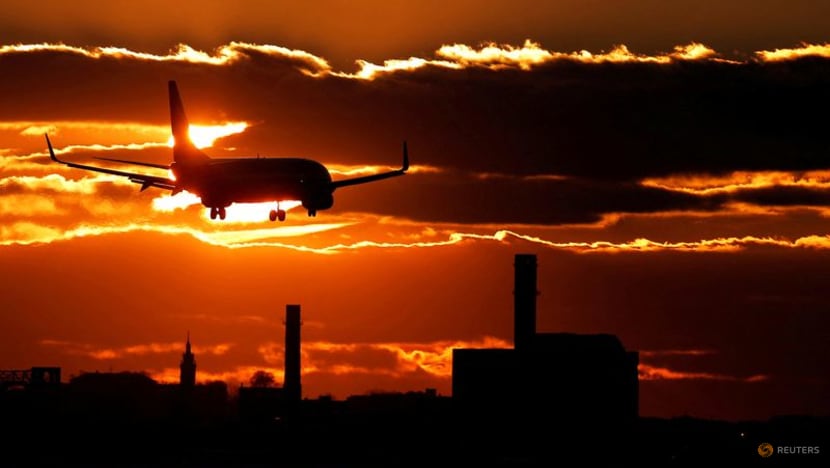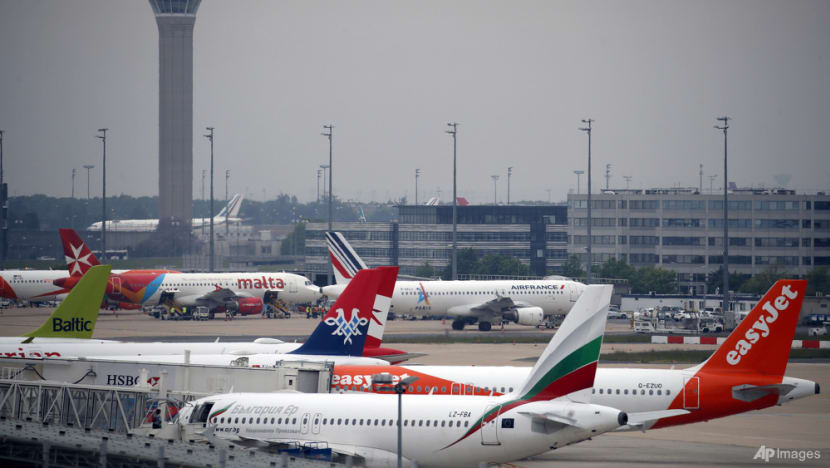Retraining staff, supply chain issues: Aviation industry faces challenges in rebuilding post-pandemic, says IATA chief
The International Air Transport Association’s (IATA) director general Willie Walsh spoke to CNA on the sidelines of the aviation body’s annual general meeting in the Turkish city of Istanbul.

The aviation industry is facing unforeseen challenges in rebuilding after the pandemic slump, due to factors such as supply chain issues, the International Air Transport Association (IATA) chief said on Monday (Jun 5).
Speaking to CNA on the sidelines of the IATA Annual General Meeting in the Turkish city of Istanbul, the body’s director general Willie Walsh also noted that higher oil prices will have a likely impact on the costs of flight tickets for consumers.
The industry’s sustainability push will also inevitably lead to higher costs, as with any other sector choosing to go green, he said.
"The pandemic years are behind us and borders are open as normal," Mr Walsh told IATA's annual summit of some 300 carriers on Monday, where he also shared the annual report of the air transport sector.
LESSONS FROM THE PANDEMIC
While the industry had learned from previous downturns to reduce capacity quickly, the pandemic was different, Mr Walsh said.
“Because of the prolonged nature, I don't think we fully understand or understood all of the challenges of rebuilding,” he told CNA.
He cited the example of Cathay Pacific in Hong Kong having to retrain a lot of its pilots as most of them had not flown in over two years.
Mr Walsh said it is not an easy task to “bring people back up to the level of competence that they were operating at in 2019”, and it requires time and resources, such as simulators that are in scarce supply.
He said that the industry is currently also facing issues in meeting demand, due partly to things beyond the control of the airline.
For example, in the US and Europe, there are air traffic control restrictions, along with a lack of air traffic controllers available, particularly in the US.
Factors like these have forced airlines to suppress their operating capacities going into the market, he said.
“Across the world, we are seeing problems with the supply chain, particularly spare parts from engine manufacturers, which have slowed down the reintroduction of aircraft that were grounded,” he added.
Hence, it takes longer for planes to undergo maintenance, as some parts are not available, explained Mr Walsh.
AIR TICKET PRICES GOING UP
Mr Walsh said that apart from supply and demand, another factor impacting airfares is fuel.

“The other most important factor that plays into our fares is fuel. Fuel is our single biggest cost. During 2022, we saw record oil prices. And while we saw the price of crude moderate through the year, we didn't see a corresponding fall in the price of jet. So we call the 'crack spread' the differential between crude prices and jet prices,” he said.
He added that the gap between crude oil prices and jet fuel prices had hit the most elevated levels he had ever seen, reaching as high as 60 per cent.
“So if you have high oil prices, there's just no question that that plays into ticket prices,” said Mr Walsh.
However, the IATA chief said the rising prices do not represent the end of budget travel. It just means that the average ticket price will be higher than what consumers have been used to.
“There's no question of the industry being capable of absorbing that with the tiny levels of profitability that we make. But I don't see this structurally changing the industry. I think it will have some impact on demand, and it may well suppress the rate at which demand for air travel grows,” he said.
GOING GREEN
Mr Walsh added that as the industry goes green, costs will inevitably be passed down to the consumers.
“Ultimately, this will be reflected in ticket prices. I think it's a fallacy for people to believe that you can transition to net zero at no cost. There is a huge cost associated with decarbonising any industry,” he said.
He said that the production of sustainable aviation fuel, which costs more, can be scaled up, if the right government policies and frameworks are in place to incentivise production.
In the US, for instance, there are significant incentives being provided by the federal government and some state governments to encourage greater production of sustainable fuel, he noted.
“I think the debate now is whether that new generation aircraft will be powered by conventional kerosene, or is there going to be a hydrogen-powered source? And there's a disagreement depending on who you talk to there,” said Mr Walsh.
He cited the example of aviation firm Airbus, which has committed to hydrogen-powered aircraft from 2035.
“From my point of view, I think hydrogen actually plays a part later on. I think beyond 2050, hydrogen will be a much more important factor for the industry,” said Mr Walsh.
He believes that in the short and medium term, sustainable aviation fuel is a much better investment to focus on, rather than furthering research and development into new aircraft technology.
Mr Walsh explained that the advantage of producing sustainable aviation fuel is that a “drop-in fuel” can immediately be used with existing aircraft.
“We don't require any technical adjustment. It can be used with existing infrastructure at airports. So it's available to us immediately, and it doesn't depend on the technology being developed by the manufacturer,” he said.















